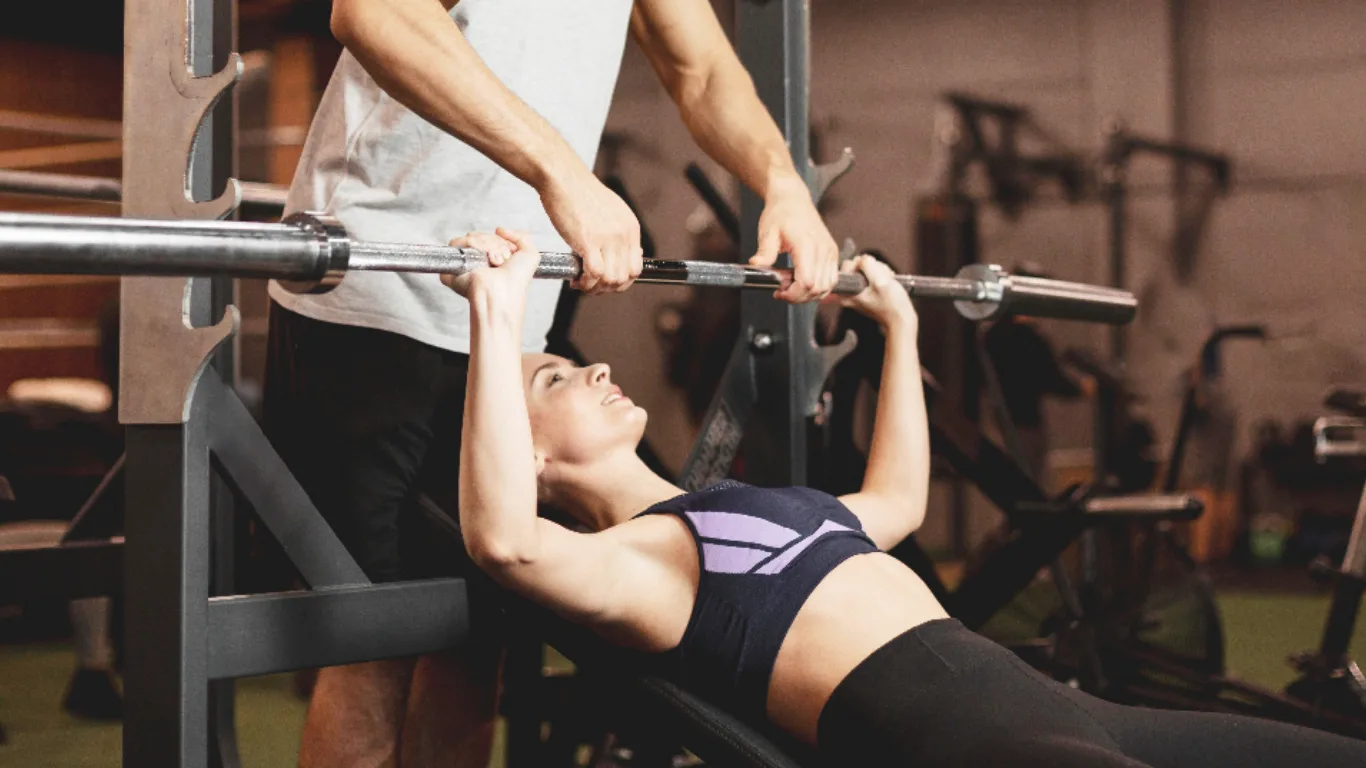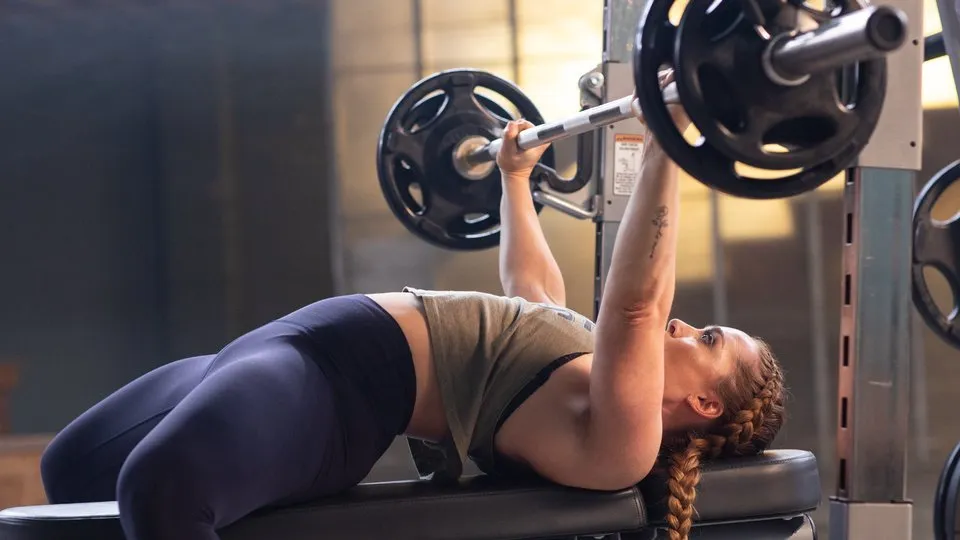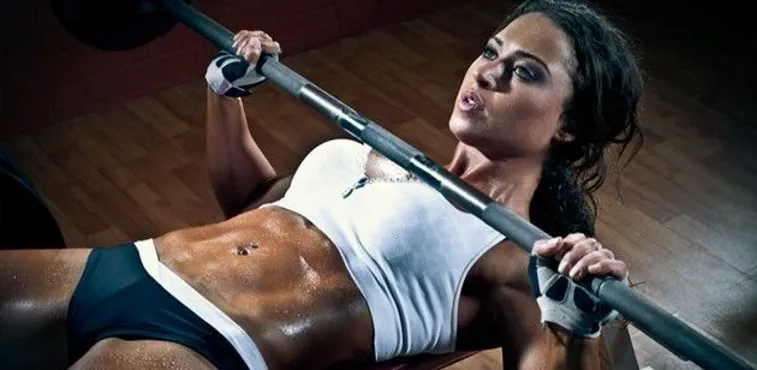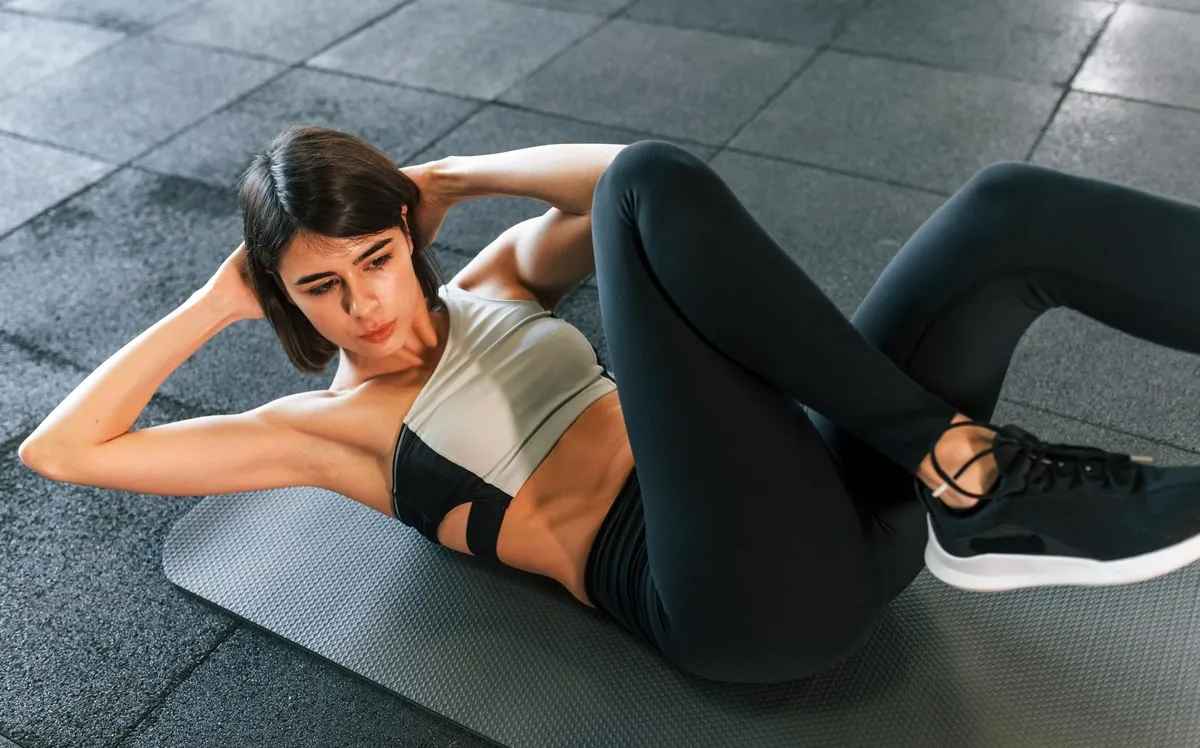
We use cables, weights, equipment, and even our own body weight to strengthen our chests. People frequently assert that the bench press is the most well-liked chest exercise. "Does a bench press workout biceps?" It's common knowledge that the bench press works the chest, but can it also work the biceps? By carefully going over today's workout and muscle groups, this problem can be fixed.
We'll start by looking at the structure of your biceps. After answering some frequently asked questions concerning the muscle group, we will offer a few ideas. What are you standing at? Now is the moment to begin!
A bench press: what is it?
One challenging exercise that tones the muscles in the upper body is the bench press. The best way to increase weight using a barbell or a set of dumbbells is to lie on a bench. When performing a bench dumbbell press, you drop the weight to chest level, then push upward with your extended arms. Does a single repetition, or rep, of the bench press exercise help build biceps? There are numerous varieties of bench presses, each targeting a particular muscle area. These could be resting flat, putting your hands closer together on the barbell, or reclining at an angle or descent.
Read More: Post-Pregnancy Fitness Routine for Indian Moms
How do bench press variations affect the muscles?
The muscles targeted by each variation of the bench press are slightly different. According to 2017 study, these variations include the following (to 2017d Source): dependable
- Sourcech press: This exercise entails lying down on a bench and raising and lowering a barbell to chest height. It fortifies the muscles of the arms, shoulders, and chest.
- Along bench press: Because the bench should be angled upward between 45 and 60 degrees, you are leaning back slightly in this form. It targets the muscles in the upper chest and shoulders.
- Bench press decline: For this variation, slope the bench downward until, when you lie down, your feet are higher than your head. It uses the muscles in the lower chest and shoulders.
- Narrow-grip bench press: In this variation, your hands are closer together on the barbell. It tones the triceps and forearms.
It is not necessary to perform each of these variations in a single workout. An injury could arise from overusing a particular muscle group. This is especially true when handling large loads. You can select two or more variants per session if you enjoy diversity. Before advancing to the next variations, try to allow yourself one or two days of rest so that your muscles can recover.
Does Bench Press Work Biceps?
The bench press is mostly a chest exercise, but it can also somewhat strengthen your brachia. During a bench press, your brachii biceps stabilize you, assisting you in controlling the weight and keeping your form correct. You must perform exercises like preacher curls, chin-ups, and bicep curls to work your biceps. If you want to tone and develop your biceps, using weight lifting straps will allow you to lift more weight and increase the resistance of your muscles.
Does Bench Press Work Shoulders?

Of course, bench pressing also trains your shoulder muscles, particularly the anterior deltoids. During a bench press, the anterior deltoids, the front part of your shoulders, work in tandem with other muscle groups to shift the weight.
Does a bench press work triceps?
Of course, bench pressing is a wonderful exercise for focusing on your triceps. Located at the back of your arms, the triceps muscles work with the chest muscles to drive the weight during a bench press. Dropping the weight on your chest causes your triceps to tense; extending your elbows helps lift the weight back up.
Advantages of Bench Pressing
A great workout that noticeably boosts your muscles and general health is bench pressing. Bench pressing has many benefits listed here:
- Increased strength in the upper body: Bench pressing strengthens a number of muscles in the upper body, which may increase your general strength and ability in other sports.
- Enhanced muscular growth: Bench presses on a regular basis tone your chest, shoulders, and biceps.
- Better posture: By strengthening your back and chest muscles, bench pressing can help you become more upright and reduce your likelihood of making mistakes.
- Increased bone density: Stress-inducing exercises like bench pressing may help you increase bone density and reduce your risk of osteoporosis.
How the Bench Press Engages Your Biceps
The bench press, also referred to as a compound workout, primarily works the triceps, front deltoids, and pectoralis major (chest). When pushing, the biceps continue to function as bicepsbilizers. Here's how:
1. Stabilization of the elbow
As you raise the barbell to your chest, your biceps contract to support your elbow and control the downward motion. The biceps are subjected to an uncommon (lengthening) strain, which may gradually encourage muscle growth.
2. Contraction that is isometric
Your biceps work isometrically, or without changing length, to keep your elbow and forearm posture constant during the pushing phase. It nevertheless results in bicep strain, which is necessary for hypertrophy (muscle growth), even though it is not as evident as curls.
3. And Activation of the Forearm
A firmer grip on the barbell increases biceps activation by shifting some of the weight from the chest and triceps to the forearms and biceps. The biceps have to work harder to maintain the action because of this change in grip.
How Arm Strength Is Increased by Bench Press

The bench press is one of the most well-liked and effective workouts for building upper body strength, particularly for your arms. Gaining proficiency in the bench press will help you achieve your goals of increasing muscle growth, improving athletic performance, or simply becoming stronger overall. The bench press, its activity, its effect on arm strength, and methods to improve your performance over time will all be covered in this article.
1. Engagement of the Triceps
In the last stage of the bench press, called the lockout, the triceps are essential. The triceps contract to lengthen the elbows as you raise the weight, gradually strengthening them. Other pressing and pushing workouts benefit from increased arm strength, which is a result of stronger triceps.
2. A Greater Mass of Muscle
Strong injuries and mechanical strain from heavy bench pressing promote muscle development (hypertrophy). Arm size and strength are increased by having larger triceps and delts.
3. Better Stabilization
Your biceps and forearms support the bar during the movement. By improving overall arm stability and control, strengthening these supporting muscles improves performance in other tasks.
Also Read: How To Get Rid Of Side Boob Fat? A Complete Guide
Bench Press for Muscle Balance: Develop a Symmetrical, Stronger Chest
The bench press is one of the most popular exercises for building powerful mass and upper body strength. It's not only about lifting big weights, though; it's also about maintaining proper muscle balance. muscular imbalance during the bench press can lead to poor muscular symmetry, inconsistent strength development, and eventually injury.
If you feel that one side of your chest or triceps is stronger than the other, it can be a sign that your training regimen or technique needs to be adjusted. In this piece, I'll go over the several reasons why muscle balance is crucial during the bench press, as well as how to spot and fix imbalances and the best techniques for enhancing wide symmetry and strength.
Conclusion
Although the bench press mostly works the chest, shoulders, and triceps, it does a bit include the biceps as stabilizing muscles. Though the biceps are not the main muscles being used, they help regulate the action and stabilize the arms throughout the lift. Including direct bicep workouts like curls and chin-ups into your regimen would be more efficient if your aim is to develop larger or stronger biceps. Including the bench press in your exercise regimen, therefore, may help improve general upper body strength and balance, indirectly helping bicep growth.
.


